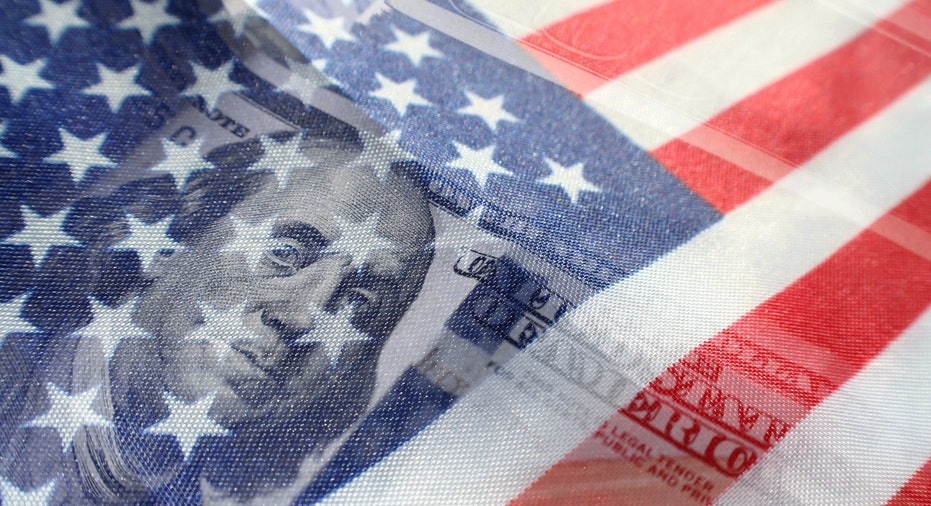How has the Biden administration helped student loan borrowers?

How will the Biden administration help student loan borrowers in 2021? Learn what to expect with federal loan forgiveness and some steps you can take to improve your financial situation. (iStock)
Student loan debt is a growing problem in the U.S., with over $1.7 trillion in outstanding student loans. But with President Biden in office and a Democratic-controlled House and Senate, will millions of dollars in student debt be canceled? While student debt relief is discussed often, it's unclear what will actually happen.
Robert Farrington of The College Investor thinks it’s unlikely. “Student loan forgiveness does have support, but in order for it to be tax-free, it will require Congress," Farrington said. "Any loan forgiveness would likely need to be included in a bigger bill about higher education, and it could be challenging.”
Refinancing loans may be an option but there's an important caveat. Federal student loan payment is different than a private student loan payment. If you have private student loans then federal relief doesn't apply to you. If you're looking to lower monthly payments and ease the burden of student loan debt, then consider refinancing your student loans. Lock in some of the lowest interest rates ever via the online marketplace Credible.
How has Biden helped student loan borrowers?
The coronavirus pandemic left millions of Americans out of work. So last March, the previous administration put a temporary freeze on federal student loan repayments.
One of the first things President Biden did after taking office was to extend that freeze until October 2021. This grace period means that federal borrowers don’t have to make any monthly student loan payments through at least September 2021.
During his campaign, President Biden proposed a program that would offer $10,000 in debt relief for all undergraduate and graduate borrowers. And Biden has proposed changes like expanding Pell Grants, providing free community college, and simplifying income-driven repayment plans. This student loan relief would be welcome by many borrowers but it may not be the exact student loan debt relief they were hoping for with a new administration.
What are borrowers’ expectations?
The student loan payment freeze provides some relief to cash-strapped borrowers, but could loan forgiveness be on the way? Members of Congress have encouraged Biden to take executive action and forgive as much as $50,000 in student loan debt per borrower.
Farrington believes borrowers are 50/50 as to whether President Biden will provide any federal loan forgiveness. “What’s interesting is that the majority of Americans do support loan forgiveness, and even a slight majority of those who’ve never had student loans also support it,” Farrington said.
Refinancing student loans may also be beneficial, depending on the borrower's individual circumstances. Refinancing is the right financial move only if a student loan refinancing calculator shows that taking out a new student loan refinance loan can save money compared with your current loan. Find out more today by visiting Credible.
Should you refinance your federal student loans?
For many borrowers, refinancing private student loans is one of the best ways to lower your monthly payments and experience immediate relief. But is this a good option for federal borrowers right now?
Farrington says that it’s probably not the right move for federal loan borrowers at this point. “Given interest rates are at 0% and payments are paused, it doesn’t make sense to do anything with your loans right now,” Farrington said.
And federal education loans also come with certain borrower protections, like income-based repayment plans and student loan forbearance. If you refinance your student loans, you’ll lose access to those protections.
If loan refinancing was something you were considering, Farrington recommended waiting a few months. “Yes, interest rates are still near all-time lows, but they will be low for the foreseeable future as well. Waiting a few months and enjoying no payments or interest is smart,” Farrington stated.
Should federal student loan borrowers keep making monthly payments?
If you’re in a good financial position and can afford to continue paying down your federal student loan debt, should you keep paying down your loan balance? Farrington said no and reiterated that federal borrowers should avoid doing anything with their school loans right now.
“I’m a big believer in never giving the government any extra money you don’t have to. And this is a prime example of when you should not be doing anything. Since interest rates are also 0%, your loans aren't growing by not making payments.”
Instead, he recommends that borrowers use that money to get their personal finances in order. Instead of paying your loan servicers, Farrington recommended saving money in a high-interest savings account.
What should private student loan borrowers do right now?
While federal student loan borrowers have a reprieve from their monthly payments, that same luxury is not extended to private student loans. For those borrowers, student loan refinancing may be a smart move.
If you have multiple private loans, then you’ll start by consolidating them into a single refinanced loan at a lower rate. That means instead of multiple student loan payments every month, you’ll have one lower monthly payment.
And depending on the total loan amount, refinancing can save you thousands of dollars in interest over the life of the loan. You can use an online student loan refinancing calculator to check your rates and get a sense of what your new monthly payments could be.
And if you use a lending marketplace like Credible, you can compare rates from up to 10 different lenders. That way, you can compare your options and find the best rates and loan terms for your situation.




















